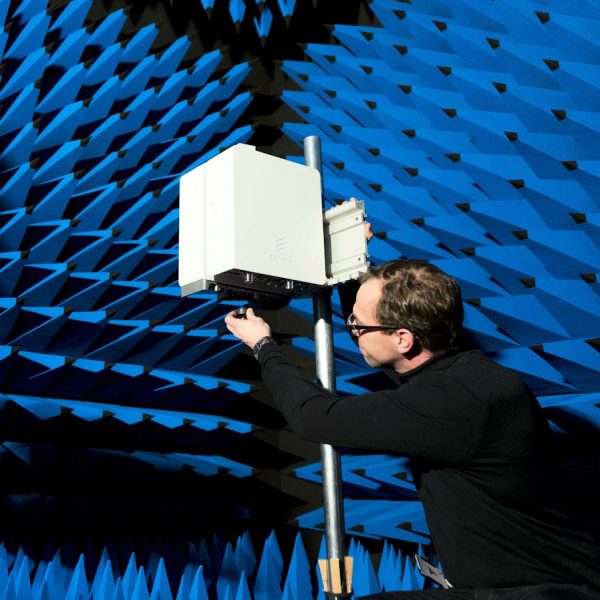Ericsson Use Commercial 5G mmW Kit to Hit 4.3Gbps Speed

Telecoms kit maker Ericsson has announced that they’ve been able to achieve mobile broadband download speeds of 4.3Gbps by harnessing 800MHz of spectrum frequency in the millimeter Wave (mmW) bands, which was crucially achieved during interoperability testing using regular commercial solutions.
Apparently the company achieved the “fastest 5G speed to date” by combining bits of spectrum from 8 different mmW bands via Carrier Aggregation (8CC), although sadly we’re not told what bands were actually used and nor do they offer any information about the distance of the transmission (mmW tends to only be good over fairly short ranges in urban areas). All of this also occurred at a lab test in Kista, Stockholm.
At this point we should remark that many earlier 5G trials were actually able to achieve significantly faster speeds than 4.3Gbps in the lab, although those used experimental hardware (not commercial kit) and often harnessed significantly more spectrum frequency. What Ericsson’s test really shows is that the 5G is being refined and improved, much like we saw with 3G and 4G before that as they evolved and got ever faster post-launch.
Advertisement
In this case the test setup harnessed Ericsson’s Radio System Street Macro 6701 kit over-the-air using a 5G smartphone form factor test device powered by the Qualcomm® Snapdragon™ X55 5G Modem-RF System. The related commercial solution, including network and terminal support, will be available to 5G consumers during 2020.
Per Narvinger, Ericsson’s Head of Product Area Networks, said:
“This is a fantastic achievement. To put 4.3Gbps in context, that is the equivalent of downloading one hour of ultra-high-definition, or 4K, content from a streaming service in just 14 seconds. Ericsson is taking the next steps in ensuring service providers can deliver the best capacity and data rates over millimeter wave 5G. The 8CC aggregation solution we have successfully tested will enable not only higher speeds but also large-scale 5G deployments and new business opportunities.”
At this point it’s worth reminding readers that the ITU’s related IMT-2020 (5G) standard defined its top speed as 20Gbps (Gigabits per second), although much like with earlier mobile technologies it will take a few years and lots more spectrum availability before we see peak speeds reaching even close to that. Even when they do get close you’ll probably only stand any chance of multi-Gigabit performance in dense urban areas and during off-peak periods.
Deployments in the UK are currently still hobbled as most operators only have access to a 40-50MHz slice of the 3.4GHz band (but Three UK can harness a total of around 140MHz of spectrum frequency across several 3-4GHz bands). Ofcom will be auctioning more bands off later this year, although services based off higher frequency mmW bands are still a little while away.
Mark is a professional technology writer, IT consultant and computer engineer from Dorset (England), he also founded ISPreview in 1999 and enjoys analysing the latest telecoms and broadband developments. Find me on X (Twitter), Mastodon, Facebook, BlueSky, Threads.net and Linkedin.
« VXFIBRE to Rollout £10m Full Fibre Broadband in Colchester UK
Oliver Dowden Named New UK Digital and Culture Secretary »






















































OMG millimetre-wave. Presumably everybody within 100 miles of the test lab now has cancer?
Yes, you are the first affected person.
Watch out for those mmWave routers! You know the ones that you’ve been able to buy off the shelf for at least a year now…and don’t get me going about the network names with a 5G affix that’s really dangerous s**t.
This is all well and good but I very much doubt speeds like this are ever going to happen in the real world.
The problem is spectrum, lack of it and cost to license.
Next problem is range. 100 meters is not mobile! Might as well just use WiFi.
Right now 4G is capable of 2Gbps but we don’t see this due the the MNO’s not having enough spectrum and not upgrading cells. Most 4G is still 30Mbps on average. If they can’t even get good high-speed coverage on technology that has been around for years then there is little hope for 5G. I’d like to see wider deployment of 2CA LTE+ or better. Yet mostly we’re stuck on LTE with only 10MHz bandwidth (75Mbps per cell)